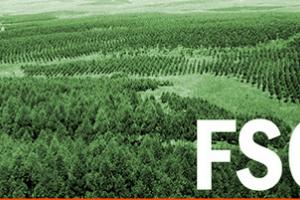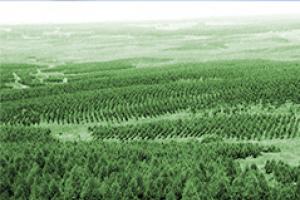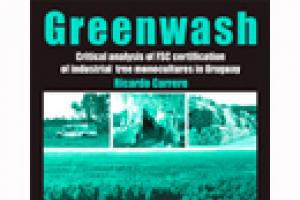The promotion of large-scale fast-growing monoculture tree plantations started in Uruguay in 1987, with forestry law Nº 15939 of December 1987. Today these plantations occupy over one million hectares of land and not only lands in the “forestry priority” category.
Uruguay
Other information
23 May 2007
Other information
23 May 2007
WRM has created a new video section in its website. You can find it in the page’s left column or going directly to http://www.wrm.org.uy/Videos/index.html.
Bulletin articles
29 January 2007
Ever since its foundation 20 years ago, the World Rainforest Movement (WRM) has stood for bottom-up efforts to protect the world’s forests against destructive development and top-down planning. We challenge imposed ‘solutions’ to the world’s forest crisis which exclude local communities, indigenous peoples, women and the oppressed by denying them a voice and rights to forge their own destinies. We continue to insist that even well-intentioned efforts to ‘save the rainforests’ will fail if they are not rights-based and genuinely participatory.
Other information
29 December 2006
It is almost certain that the Finnish public know little or nothing about Uruguayan history and on how this history relates to the current Metsa Botnia pulp mill project in this country. It is therefore important to explain that a military dictatorship ruled Uruguay from 1973 to 1984. During that period the military violated every possible human right and torture was common practice during those years. Thousands of Uruguayans –men and women- were tortured and imprisoned; scores of people were killed and “disappeared” and thousands had to live in exile during that period.
1 September 2006
Press Release - September 1, 2006
Other information
1 September 2006
We the undersigned wish to register our concern over the certification of tree plantations in our country by the FSC, which has granted a green label to monoculture plantations that have proven to be socially and environmentally destructive.
We are aware that the FSC is carrying out a review of its plantation certification policy, and it is our hope that the result of this process will be an end to the certification of these types of plantations by the FSC in the future.
Other information
1 August 2006
The Finnish company Oy Metsä-Botnia Ab (Botnia’s trade name) established in 1973, is the second largest pulp producer in Europe. It has four subsidiary companies, two of which are located in Uruguay: Compañia Forestal Oriental S.A. (FOSA), that has eucalyptus plantations; and Botnia S.A. established in 2003 to implement the project to install a pulp mill producing one million tons per year.
Other information
2 July 2006
In 1987 legislation was adopted that implied the promotion – by means of tax exemptions and subsidies – of large-scale monoculture alien tree plantations (mainly eucalyptus and pine) for export. It is thus that the country up till then based on agriculture and stock raising, started to convert part of its fertile grasslands into “green deserts” which presently cover over 700,000 hectares.
Bulletin articles
2 July 2006
In March 2006, the WRM released the publication “Greenwash: Critical analysis of FSC certification of industrial tree monocultures in Uruguay” (see at http://www.wrm.org.uy/countries/Uruguay/book.html). The report addressed the four main certified plantation companies and included a very detailed critique of the certifiers’ reports, complemented with interviews with workers and people from local communities in the vicinity of the plantation areas.
Publications
25 April 2006
By Ricardo Carrere
Other information
7 March 2006
Two large national plantation companies (FYMNSA and COFUSA), a Finnish company (Botnia-UPM/Kymmene) and a Spanish company (Ence-Eufores), have received the Forest Stewardship Council (FSC) certificate. This certificate enables the companies to assure that their “forests” (of pine and eucalyptus!) are managed in an environmentally responsible, socially beneficial and economically viable manner. At least this is what the FSC mandate affirms. However, a recent study carried out in Uruguay shows the exact opposite.
Bulletin articles
8 February 2006
A member of the Bretton Woods family since its creation in 1944 together with the International Monetary Fund (IMF), the World Bank continues to be one of the main actors in drawing up and applying macro-economic policies in Southern countries, financing public and private companies in what it qualifies as “development” projects (ranging from the construction of highways to the installation of pulp mills).



